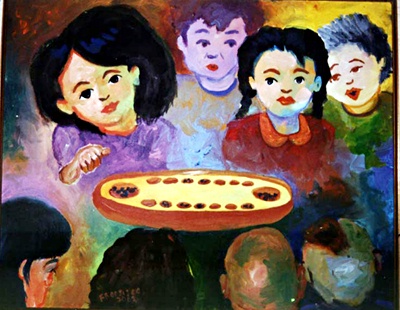All Nonfiction
- Bullying
- Books
- Academic
- Author Interviews
- Celebrity interviews
- College Articles
- College Essays
- Educator of the Year
- Heroes
- Interviews
- Memoir
- Personal Experience
- Sports
- Travel & Culture
All Opinions
- Bullying
- Current Events / Politics
- Discrimination
- Drugs / Alcohol / Smoking
- Entertainment / Celebrities
- Environment
- Love / Relationships
- Movies / Music / TV
- Pop Culture / Trends
- School / College
- Social Issues / Civics
- Spirituality / Religion
- Sports / Hobbies
All Hot Topics
- Bullying
- Community Service
- Environment
- Health
- Letters to the Editor
- Pride & Prejudice
- What Matters
- Back
Summer Guide
- Program Links
- Program Reviews
- Back
College Guide
- College Links
- College Reviews
- College Essays
- College Articles
- Back
Parents = Medicine
Up to 24 million people of all ages and genders suffer from an eating disorder, according to Renfrew Center Foundation for Eating Disorders. One type of eating disorder is called Anorexia nervosa, which is a potentially life-threatening psychological disorder that many suffer with. Characteristics of one who has this illness include refusal to maintain a healthy body weight, an intense fear of gaining weight, and a distorted body image. Though it is a mental illness, this type of eating disorder is also is harmful to the physical health of the individual.
Effective outpatient treatments are a crucial step in the affected individual’s recovery. The Maudsley Family-Based Treatment is a relatively novel treatment designed by a group of researchers at the Maudsley Hospital in London. As part of this treatment, the family is a valuable resource for treating anorexia nervosa in the adolescent. This treatment is typically twelve months long and separated into three phases. Guided by the family therapist, parents will make all decisions concerning food for the adolescent, while the siblings, if any, will act as an ally for the suffering adolescent. Parents have the most control in Phase I, less in Phase II, and by Phase III, the focus is on normalizing family and friend relations. This method has been proven quite successful by data collected, which shows that the Maudsley Family-Based Treatment can be more effective than other treatments, such as Cognitive Behavioral Therapy, for younger individuals (adolescents) with a shorter duration of illness and who live with the parents.
Through designing customized treatment plans based on family factors/dynamic, treatment for anorexia nervosa will be more effective. The Maudsley Family-Based Treatment should be used as outpatient treatment for adolescents with a short duration of the illness and who live with their parents. Hopefully, the family will be seen as a more important tool in an individual’s recovery from an eating disorder, like anorexia nervosa.
For a valuable resource for anyone interested in this treatment, visit MaudsleyParents.org.
For more information on anorexia nervosa and other eating disorders, visit anad.org or nationaleatingdisorders.org

Similar Articles
JOIN THE DISCUSSION
This article has 0 comments.
